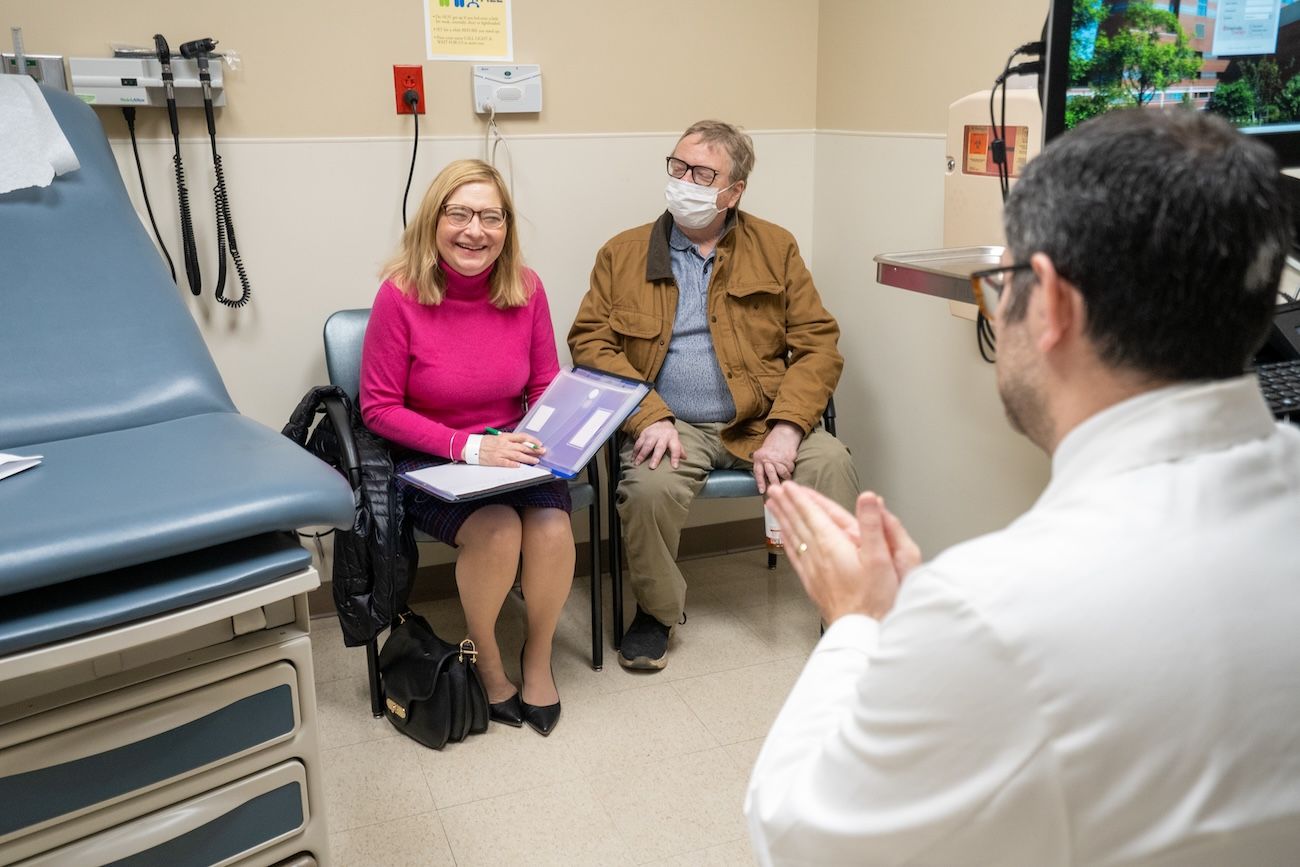Colon and rectal cancers are treated according to the specific type of cell in which the cancer first began. Getting an accurate and precise diagnosis is essential to determining the best treatment plan for you.
Our pathologists will study the cancer cells from your biopsy to pinpoint the exact type and the grade of your cancer and look for specific genetic mutations or unique characteristics. This information allows the colorectal team to determine how aggressive your cancer is, which treatments your cancer will likely respond to (and which should be avoided), and the likelihood of your cancer recurring.
Precise diagnosis is key.
Roswell Park has specialized pathologists who focus specifically on diagnosing and analyzing colorectal cancers, making them experts in the field.
The main cancer types that develop in the colon or rectum include:
Adenocarcinoma
An Adenocarcinoma is a tumor that develops in mucus-secreting cells lining the colon and rectum. The majority of colorectal tumors — 98% of them — are adenocarcinomas, which usually begin as a particular type of polyp called an adenoma. Adenomas can be removed during a routine colonoscopy.
Gastrointestinal carcinoid tumor
This slow-growing tumor develops in the cells lining the gastrointestinal tract, including the colon and rectum.
Gastrointestinal stromal tumors (GISTs)
This rare type of cancer develops in highly specialized cells of the nervous system that signal the wall of the gastrointestinal tract to contract. Most of these tumors start in the stomach, and many are benign.
Primary colorectal lymphomas
Accounting for less than 1% of all colorectal cancers, these tumors develop in the immune cells of the colon and rectum. Although the direct cause of primary colorectal lymphoma is unknown, immunosuppression and inflammatory bowel disease are risk factors.
Squamous cell carcinoma
The rarest of all colorectal cancers, these tumors develop in the smooth muscle cells or blood vessels of the colon and rectum. However, squamous cell carcinoma is the most common type of anal cancer.
The Roswell Park advantage — personalized medicine
Just like no two patients are exactly alike, neither are their colorectal cancers. Roswell Park also analyzes the DNA of your cancer cells to determine whether certain gene mutations are present, providing critical information for treatment planning. These tests include:
- Microsatellite instability (MSI) analysis to detect the presence of gene mutations that indicate Lynch syndrome, or to determine if you may benefit from immunotherapy.
- Tumor mutation testing to look for changes in the genes known as KRAS, NRAS, and BRAF. Mutations in these genes affect both the development and outcome of colorectal cancers. This test is typically done for metastatic or recurrent disease and can determine whether certain targeted therapies would benefit you. This testing can also identify patients who may require more aggressive chemotherapy.
Roswell Park’s Innovation — OmniSeqSM Precision Medical Technology
Roswell Park developed several of the most comprehensive diagnostic tests for genetic profiling and immune analysis so that your care team can customize your treatment precisely for your tumor. OmniSeq ComprehensiveSM looks for mutations within 144 of the most relevant genes and OmniSeq Immune Report Card® analyzes your body’s immune response to your cancer. With these tests, your tumor can be matched with the specific targeted drug, immunotherapy or new agent in a clinical trial that will best fight it. Learn more about this latest innovation born out of Roswell Park’s research laboratories.
